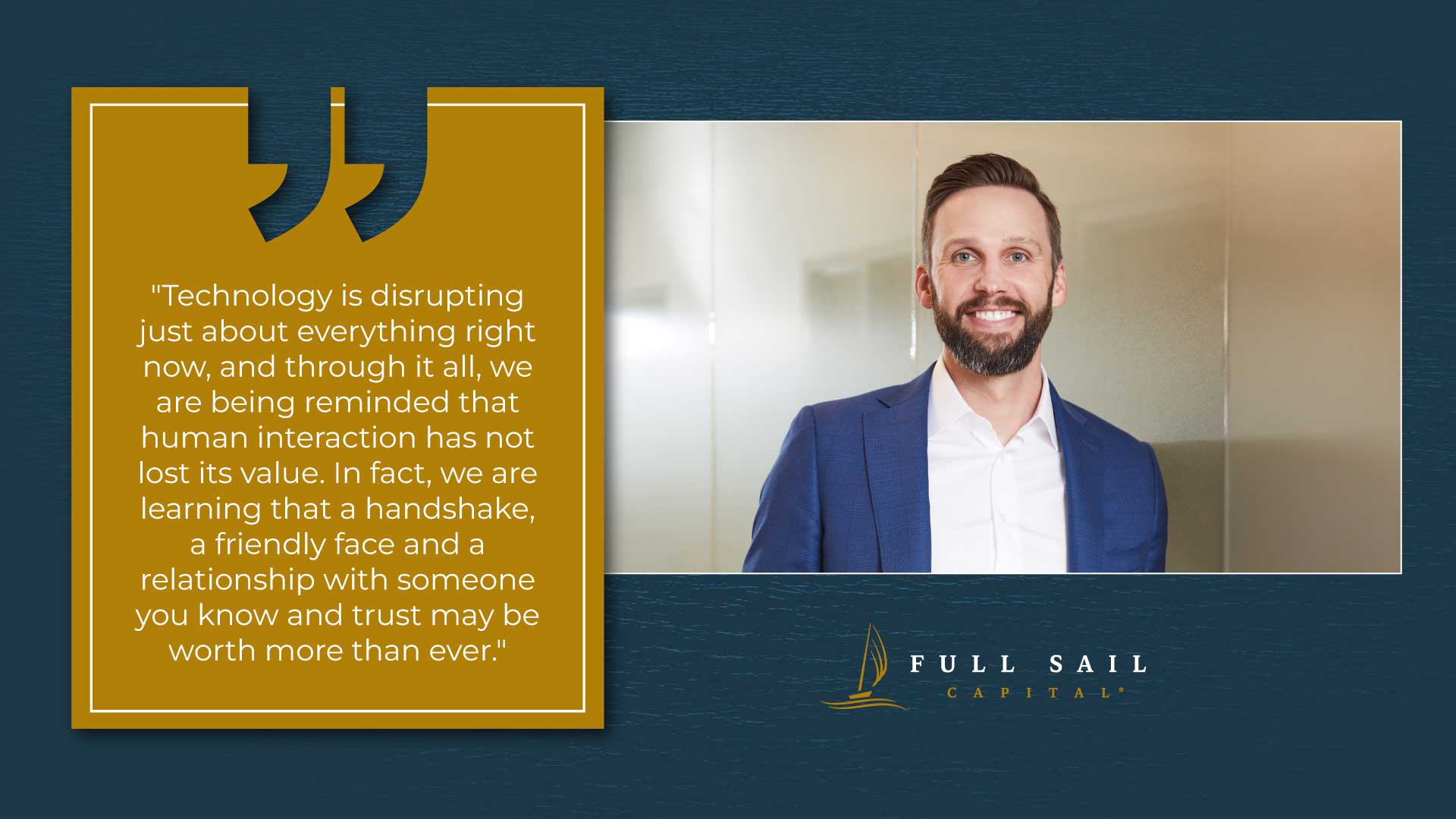With emerging technology and an abundance of digital options for savers and investors to use these days, it’s easier than ever to access markets and track your financial information.
When the Philadelphia Stock Exchange opened more than 200 years ago, investors had to have a broker to help them buy and sell financial instruments. But today, buying and selling is only a few mouse clicks away for millions of people who now have enormous technological power at their fingertips.
App-based platforms that are rich in analytics are making markets more accessible, while artificial intelligence along with machine learning tools are helping people gather up-to-date information, review their portfolios and identify trends like never before.
In short, a technological revolution in the financial industry is in full gait and the financial planning profession will undoubtedly be impacted greatly. With all this technology and access, one may ask who needs an advisor anymore with so many online investment platforms available at low or no cost at all?
Meanwhile, the number of financial advisors appears to be on the decline with reports that more than a third of the industry’s advisors will retire within the next decade. At the same time, fewer students are earning finance and accounting degrees these days, reducing the pool for potential new advisors.

On the surface, all of that may seem like a concern, but in reality, this is just another day in the modern world. Technology is disrupting just about everything right now, and through it all, we are being reminded that human interaction has not lost its value. In fact, we are learning that a handshake, a friendly face and a relationship with someone you know and trust may be worth more than ever.
Jobs, businesses, families and other obligations demand our time and make it difficult to keep up with all the complexities of shifting markets and risk matrices. When their life savings and future dreams are at stake, many people still feel better when they have financial professionals standing behind them.
But the role of a financial advisor is evolving. Clients now have a broader range of expectations and advisors are beginning to offer a wider variety of services that are not necessarily within the traditional context of asset management.
It’s not just about stocks and bonds anymore. Today’s planners are also thinking about babies, children and college students. They’re thinking about brothers, sisters, parents, and grandparents. They keep track of new jobs and big dreams, as well as weddings, and funerals.
They’re now spending more time on their clients’ life issues, such as healthcare, wealth protection, real estate, education, family dynamics, behavioral biases and the plethora of other challenges of day-to-day living.
And why wouldn’t they? Life is at the center of everything today’s advisors do. The whole purpose of financial plans, retirement savings, investing and wealth management revolves around families, their security, their health, their dreams and their futures.
The world is changing fast, and the role of today’s financial advisor is changing right along with it because we know that, with technology, there will always be gaps. The only way to fill those voids is through the hands-on involvement that only comes through personal relationships, and that is something that will never change.
